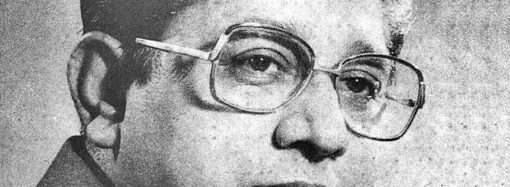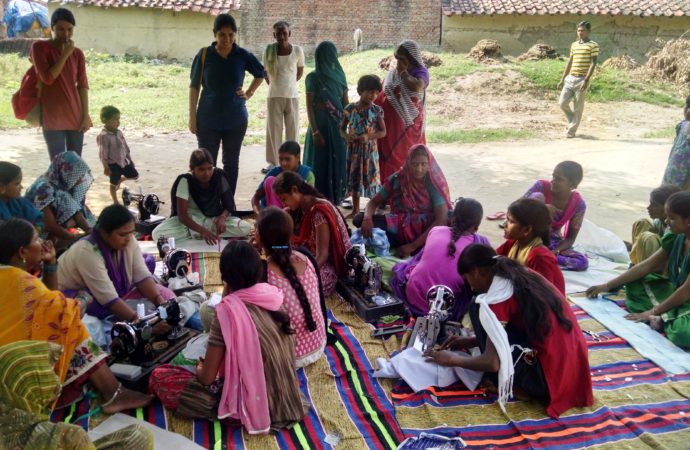Arun Nagpal, Co-founder, Mrida Group in conversation with Gunjan Joshi speaks about development of business models that create sustainable and scalable livelihood for villagers.
Q. It is interesting to note that a start-up has emerged in the arena of rural development that requires maximum attention while we talk about the development of Indian economy. How did the idea of a start-up in this domain came into your mind?
We firmly believe that for the development of our nation, steps should be taken at grass root level and consistent efforts should be made in that direction. Therefore, the focus of development should be a village. In a vast and intricate country like ours, the unit of development can only be rural India.
Another core belief that we would like to endorse is that development should not necessarily be in the form of philanthropy, grants, or donations. It can also be in the form of development of a business model that provides sustainable and scalable living for villagers. The co-founders of Mrida would like to bring the rigor and the financial discipline of corporate world into the development sector. Hence, the idea of a start-up which delves in the arena of the development came into existence.
Our team is acutely aware of the fact that if a start-up does well, it is not only because of one’s own capabilities, hard work, and perseverance but it also involves getting an eco-system that enables them to reach the limits of their desire and ability. Therefore, through Mrida, we aim to create a similar eco-system for others who may not have been much fortunate.
Q. How does Mrida approaches villagers to help them in developing their micro-grids and support them in their local entrepreneurial pursuits?
We initially try to reach out to remote rural locations through our own network and references. As our work spreads and becomes more recognizable, we get enquiries through positive word-of-mouth, and visibility. Our entry point in a village is usually a base line study. This acts as an ice-breaker and enables us to gain the trust and credibility of the villagers. This baseline study gives us an idea about the core needs of villagers and that becomes the entry point for administrative interventions in that village. Incidentally, it is not always the development of micro grids that we focus on. Though, this is definitely an important area of intervention. Depending on the location or needs, the focus areas could be livelihood, education, skill development, women empowerment etc.
Hence, Mrida believes in the significance of the holistic development. We believe that energy access is not an end but a resource to begin. Our focus is how the energy opens up in the form of several hours of productive time for villagers. The focus then shifts to how that time can be effectively utilized for education, generating livelihoods, and encouraging women empowerment thereby ensuring that the energy access becomes an important tool for development. Similarly, skill development is not sufficient in itself. We facilitate and encourage up-skilling, entrepreneurship, and then increasing market linkages. All these measures are designed to ensure that our interventions become self-sustaining over the period of time.
Q. Can you elaborate more about your businesses and tell how they change lives of rural India?
We focus on an entry point into a village through a baseline study, and then work to ensure that these interventions become the part of a holistic solution that positively impacts lives of villagers and becomes self-sustaining in nature. We also work with small and marginal farmers; self-help groups; and rural artisans in order to encourage them in cultivating, processing, and marketing the produce according to the requirements of their products. Then, we help in facilitating value addition and creation of market linkages. Over the last five years, we have worked in some 42 villages across nine different states of India. This has impacted over 20,000 underserved individuals and communities at the bottom of economical pyramid.
Q. What is your opinion about ever lowering minimum support price which a farmer gets due to which farmer suicides have increased over years?
Well, I would not like to comment on specific policies of governance. But, farmer suicides are indeed very depressing. I would love to see a focus on the holistic approach here as well which means a focus on not just cultivation but on moving progressively up the value chain. Focus of government should increase on processing, value addition, and then creation of sustainable market linkages. All of these factors will enable farmers to come out of the vicious circles that they are usually trapped in and will lead them towards self-sustaining virtuous ecosystem of prosperity and development.
Q. What are subsidiary areas other than agricultural that possess the potential to change rural lives?
Education, skill development, women empowerment, traditional artisan skill etc. As I have discussed earlier, the processing, storage, and marketing of agricultural and artisan produce also possess immense potential to change rural lives.
Q. Any remarkable story that you can recall where Mrida helped in the transformation of a rural life or an area!
We launched a stitching initiative about three years ago in a group of villages near Bareilly. It started with villagers paying for solar energy provided to them as part of a CSR initiative. The money collected from the villagers was used to start stitching classes for women of this village. The suggestion came from the villagers themselves. This stitching center has trained some 150 women over last three years. From these, about 40 women underwent an advanced (NIOS) training program which Mrida supported. 15 women from this group have now become entrepreneur and have set up their own stitching center.
As a result, women across these villages are today supplying cloth bags in bulk to an e-commerce company, shipping Palazzos to University Campuses in the US, and are in the process of supplying their first lot of baby suits to customers in France. Team Mrida takes immense pride in witnessing a real transformation in women folk who few years ago would speak with a veil covering their faces. Now, these women are entrepreneurs possess their own opinion and think nothing while reaching out on Skype to team Mrida or to prospective customers in the US requesting for marketing support to sell their output.
Q. What are career prospects for young graduates in the arena of rural development and how can they become trend-setters of society by opting it as a career?
The opportunities are huge to say the least, and will only grow as the Indian economy flourishes. Rural India promises to be the engine of growth for numerous manufacturing sectors. A basic sensitivity, sense of empathy, a passion for making a difference, and the determination to do something concrete, can open up immense opportunities for students willing to make even the smallest of interventions. These efforts can make a huge transformative impact on society which can make underprivileged groups in society sustainable as well as scalable.


















Leave a Comment
Your email address will not be published. Required fields are marked with *